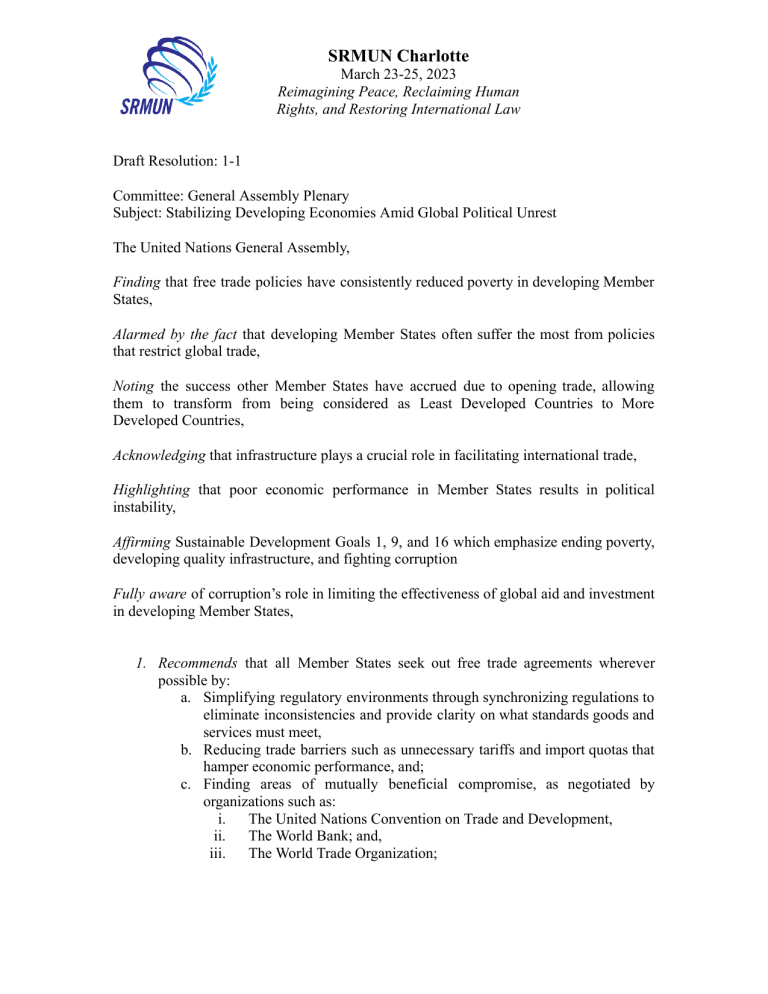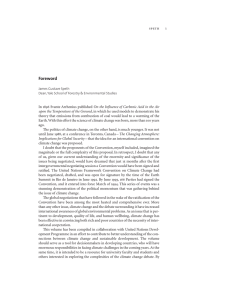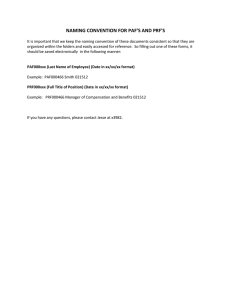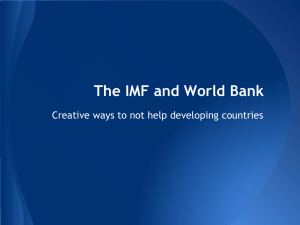
SRMUN Charlotte March 23-25, 2023 Reimagining Peace, Reclaiming Human Rights, and Restoring International Law Draft Resolution: 1-1 Committee: General Assembly Plenary Subject: Stabilizing Developing Economies Amid Global Political Unrest The United Nations General Assembly, Finding that free trade policies have consistently reduced poverty in developing Member States, Alarmed by the fact that developing Member States often suffer the most from policies that restrict global trade, Noting the success other Member States have accrued due to opening trade, allowing them to transform from being considered as Least Developed Countries to More Developed Countries, Acknowledging that infrastructure plays a crucial role in facilitating international trade, Highlighting that poor economic performance in Member States results in political instability, Affirming Sustainable Development Goals 1, 9, and 16 which emphasize ending poverty, developing quality infrastructure, and fighting corruption Fully aware of corruption’s role in limiting the effectiveness of global aid and investment in developing Member States, 1. Recommends that all Member States seek out free trade agreements wherever possible by: a. Simplifying regulatory environments through synchronizing regulations to eliminate inconsistencies and provide clarity on what standards goods and services must meet, b. Reducing trade barriers such as unnecessary tariffs and import quotas that hamper economic performance, and; c. Finding areas of mutually beneficial compromise, as negotiated by organizations such as: i. The United Nations Convention on Trade and Development, ii. The World Bank; and, iii. The World Trade Organization; 2. Endorses investment in infrastructure through policy-based loans applied to projects including, but not limited to: a. The construction of roads connecting important industrial sites to transportation, b. The dredging of ports in order to expand their shipping capacity; and, c. Energy infrastructure that is both environmentally sustainable and capable of meeting domestic needs, such as: i. Nuclear, wind, and tidal energy projects, ii. Agrivoltaics and solar energy, and, iii. Alternative housing sites that minimize waste and emissions; 3. Supports the provision of these loans by Non-Government Organizations (NGOs), like: a. the International Monetary Fund (IMF), b. the World Bank, c. the Inter-American Development Bank, and, d. the Asian Development bank; 4. Further invites developed Member States to invest in the infrastructure of LDCs through methods including, but not limited to: a. Providing similar policy-based loans that provide the necessary capital for infrastructure development, b. Increasing monetary contributions to the Aid for Trade initiative, c. Utilizing funds from the Addis Ababa Action Agenda to provide the necessary capital for infrastructure development; d. Encouraging domestic firms to invest abroad through policy measures such as tax incentives provided to firms who invest in infrastructure abroad, as well as infrastructure subsidies; and, e. Offering training and education services designed to help developing Member States to meet climate-based challenges by promoting scientific education that informs citizens on climate change, its causes, and its consequences, as well as vocational programs that give citizens the technical skills necessary to address climate change through innovation; 5. Encourages developing Member States to create programs designed to prevent corruption, such as: a. Criminalizing tax deductibility on foreign bribes, b. Implementing management control systems that prevent bribery as recommended by the Organization for Economic Cooperation and Development’s (OECD) Anti-Bribery Convention; and, c. Deploying measures that prevent influence trading and abuse of power; 6. Further recommends that developing Member States take on alternate measures based on documents such as: a. The OECD’s Anti-Bribery Convention, b. The United Nations Anti-Corruption Convention; and, 2 c. The IMF Framework for Enhanced Engagement on Governance. 3





